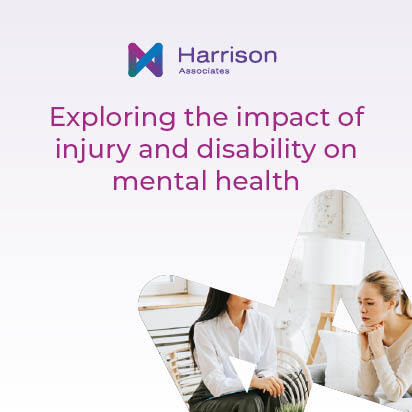For those who have been left suffering with injuries or disabilities after trauma, the mental challenges can be devastating. Not only for the individual themselves, but for those around them to see them in emotional pain. That’s why, in an effort to support those individuals, and provide them with the best possible networks and resources, campaigns such as World Mental Health Day were born, with organisations across the globe pledging their support.
What is World Mental Health Day?
World Mental Health Day is recognised each year on October 10th, with the World Federation for Mental Health setting this years’ theme as 'making mental health and wellbeing for all a global priority'.
It’s an annual campaign with a consistent goal - to make sure that mental health is treated on a par with physical health – and seeks to drive awareness that mental health challenges do very much exist in our lives, families, workplaces and communities.
Though World Mental Health Day is also an important gateway to talking about mental health in general, narrowing the stigma and directly addressing its importance, and directing those who are struggling to source the best supportive resources.
Do people living with disability following accidents have a higher propensity to mental health concerns?
According to the Centers for Disease Control and Prevention (CDC), adults with disabilities experience frequent mental distress almost 5 times more than adults without disabilities, and the Mental Health Foundation also highlights that experiencing severe trauma such as an accident, can leave adults more susceptible to developing post-traumatic stress disorder (PTSD).
This is because unexpected, one-time events, such as an accident, injury, or a violent attack, can contribute heavily to poor mental health, often leaving the individual struggling to cope with the results of what happened to them physically affecting their day-to-day lives.
Living with physical impairments following an accident can, for some, mean living the rest of their lives in completely new ways. For example, if a sportsperson suffers spinal injuries in an accident and is left unable to walk, or if a teacher or medical professional is left with a head injury which leaves them unable to work. The affects of severe, sudden lifestyle changes which are the result of such accidents can have a staggering toll on someone’s mental health.
Is the current state of the world also having an impact on poor mental health?
Whilst the COVID-19 pandemic may feel like a distant memory to some, the International Day of People with Disabilities campaign calls out that the effects of long-term isolation, disconnect, disrupted routines and diminished health services have greatly impacted the lives and mental well-being of people with disabilities.
These added stresses are still very much impacting people today too, as the cost-of-living crisis continues to leave people emotionally drained and feeling increasingly insecure, with the added financial stresses leading to fear, anxiety and poorly affecting physical and mental health.
Are there ways mental health concerns can be improved?
Yes, there are a number of different ways mental health can be positively impacted by those experiencing it themselves. These include:
- Prioritising emotional health: making time to unwind or doing enjoyable activities you will help to clear the mind, focus on the here and now and allow people the chance to pause, breath.
- Taking breaks from watching, reading, or listening to news stories, and social media: hearing unintentional references to personal trauma can be upsetting and triggering.
- Taking time for physical health: caring the body through exercises, eating well-balanced meals and getting enough sleep.
- Avoiding excessive alcohol and drug use: whilst this may seem blot out pain or trauma in the immediate, it can also have catastrophic long-term consequences which result in a worse mental state.
- Connecting with others: talking to friends or family about concerns and feelings. Even phone calls or video chats can help people feel socially connected, less lonely, or isolated.
- But also knowing that it’s okay to not be okay: this could mean looking into mental health treatment and other support services and resources, including in person counselling, telehealth services therapy or speaking to a medical professional.
We understand, and we are here to help
At Harrison Associates, we completely appreciate that no one person responds in the exact same way to trauma as the next. Stressful situations, injuries, accidents and disabilities can all contribute towards a worsened mental health, and so it’s important to fine the right support system that works for each individual person.
Our goal is to lead the way for Case Management by offering an empathetic, outcome-focused approach which supports claimants every step of the way.
In fact, for over 30 years, we have developed, delivered and monitored tailor-made rehabilitation plans for those with catastrophic trauma, multiple injuries and disabilities.
Our team are trusted by over 500 legal firms, trusted by the solicitors and insurers dealing with complex cases, and most importantly of all, we are trusted by the people whose rehabilitation we manage.
To find out more about our services, contact our team today.




